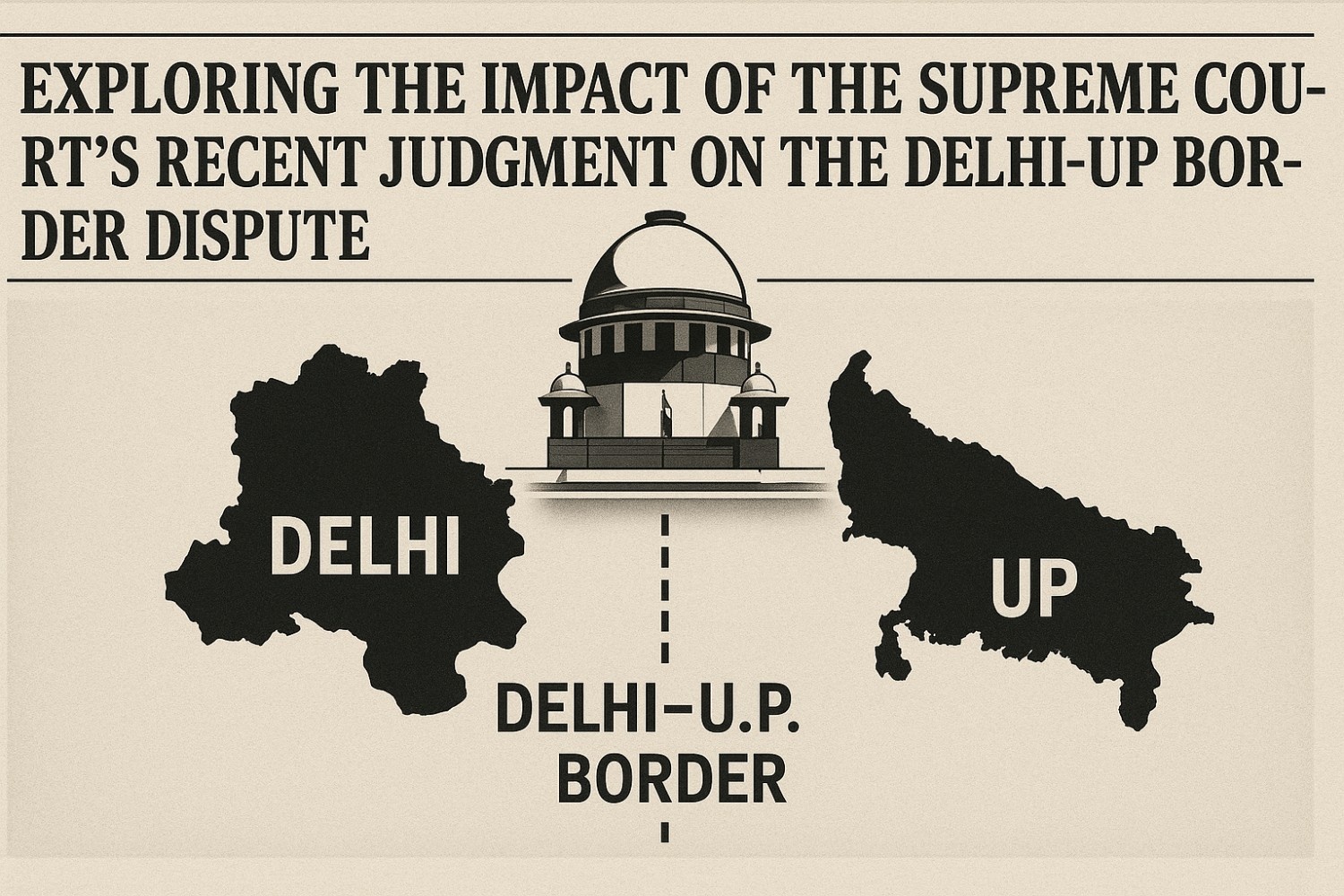Exploring the Impact of the Supreme Court's Recent Judgment on the Delhi-UP Border Dispute

The Supreme Court's Judgment on the Delhi-UP Border Dispute
The Supreme Court has passed a significant judgment on the long-standing border dispute between Delhi and Uttar Pradesh. The judgment has far-reaching implications for residents, businesses, and authorities in the region.
In this blog post, we'll delve into the key points of the judgment and its impact on the affected areas.
Background
The border dispute between Delhi and Uttar Pradesh dates back to the 1950s. The issue revolves around the demarcation of the border and the allocation of territory. The Supreme Court has been monitoring the situation and has now passed a judgment to resolve the dispute.
Key Takeaways from the Judgment
- Delhi to retain 65% of the disputed territory: The Supreme Court has ruled that Delhi will retain 65% of the disputed territory, while Uttar Pradesh will retain 35%. This is a significant shift from the earlier status quo, where Uttar Pradesh controlled a larger portion of the border.
- New borders to be demarcated: The judgment has ordered the demarcation of new borders between Delhi and Uttar Pradesh. This will involve the creation of a boundary commission to survey and mark the new border.
- Residents and businesses to be compensated: The Supreme Court has directed the governments of Delhi and Uttar Pradesh to compensate residents and businesses affected by the border change.
- Authorities to work together: The judgment emphasizes the need for cooperation between the authorities of Delhi and Uttar Pradesh to resolve any future disputes and ensure smooth functioning of the region.
Conclusion
The Supreme Court's judgment on the Delhi-UP border dispute is a significant step towards resolving a long-standing issue. The key takeaways from the judgment are clear: Delhi will retain a larger portion of the disputed territory, new borders will be demarcated, and residents and businesses will be compensated. As the authorities work to implement the judgment, it's essential for residents and businesses to stay informed and adapt to the changes.
